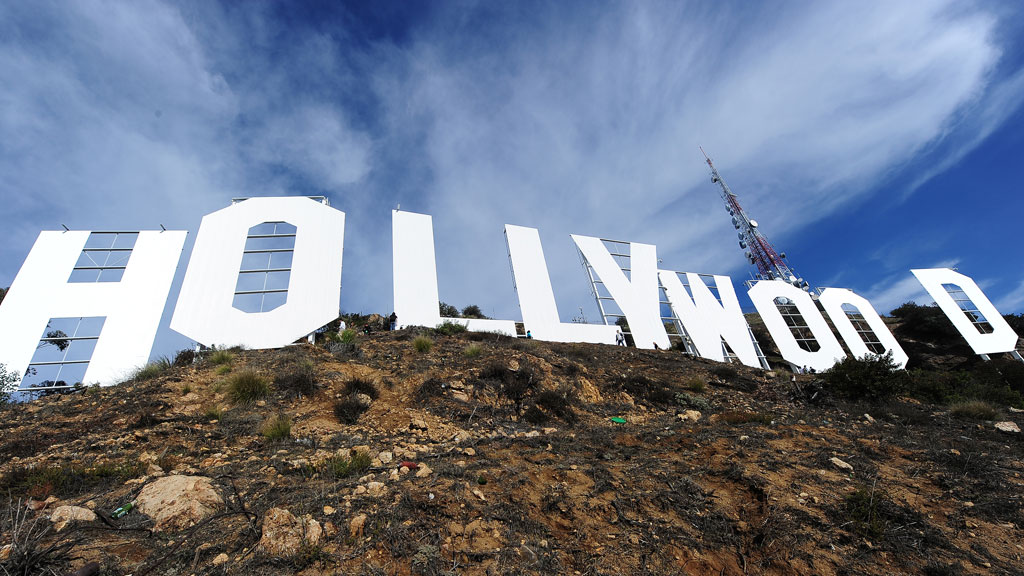Hollywood bosses at White House for gun violence talks
After the Connecticut school shooting: the search for blame. Media bosses say it’s not on-screen violence that’s the problem, as they meet vice president Biden for talks on America’s gun culture.

In the wake of one of the most appalling mass shootings in memory, the White House is getting serious about tackling America’s gun violence. Vice president Biden has been tasked with drawing up new policy ideas in response to the Connecticut school shooting: meeting victims’ groups, gun safety organisations, and the National Rifle Association.
He told reporters that his task force was studying a list of recommendations which he would hand over to President Obama by Tuesday next week. He said the list was likely to include an appeal for universal background checks for anyone buying a gun, and a ban on high capacity ammunition clips.
The issue could hardly be more urgent: at the very moment he was delivering his remarks, reports started coming through of a shooting at a high school in Taft, California. Local sources said two people had been shot, and the gunman was in custody.
But back in the White House, it was the turn of Hollywood executives to meet Mr Biden: they have already insisted that they “want to be part of the effort to help America heal”. But that does not mean they are open to any compulsory restrictions on content.
Those at Thursday’s meeting include former senator Chris Dodd, head of the Motion Picture Association of America, Gordon Smith, president of the National Association of Broadcasters, and Directors’ Guild chief Jay Roth.
There were no advance details about the meeting, but Mr Dodd told the Hollywood Reporter that he was “vehemently opposed” to any effort to impose guidelines on the industry. “We have a free and open society that celebrates the First Amendment”, he said.
The studios might he happy to take part in discussions, but the issue of whether the entertainment industry has in any way contributed towards an acceptance of gun violence as part of everyday culture is quite another matter.
Director Quentin Tarantino, whose new film Django Unchained opens in London this week, is certainly not shy of depicting violence on screen. But pressed by Channel 4 News’ Krishnan Guru-Murthy, he was singularly reluctant to discuss any potential link with real-world tragedies.
When Krishnan met Quentin: see the encounter here
But Tarantino did venture further in an interview with NPR’s Terry Goss, drawing a clear distinction between the types of violence he tried to portray. Some, he said, was clearly “movie violence, and that’s fun and that’s cool, and that’s really enjoyable and kind of what you’re waiting for.”
And, he went on, “(It’s disrespectful) to the memory of the people who died to talk about movies. I think it’s totally disrespectful to their memory. Obviously, the issue is gun control and mental health.”
Some of his fellow industry colleagues agree. Arnold Schwarzenegger, busy promoting his gun-toting movie The Last Stand, told reporters it would be wrong to blame Hollywood. One, he said, was entertainment: “and the other thing is a tragedy beyond belief. It’s really serious and it’s the real deal.”
John Landraf, head of the FX television network, said it was important for the media to look at its own responsibility – but he singled out “gun laws which allow a crazy person to create an untold amount of mayhem”. British consumers, he said, had access to the same kind of entertainment, but not semi-automatic weapons.
We have a free and open society that celebrates the First Amendment. Chris Dodd, Motion Picture Association of America
To the NRA, it is all a lot more straightforward: its president Wayne LaPierre describing it as the filthiest kind of pornography: “Thousands of music videos, and you all know this, portray life as a joke, and they… portray murder as a way of life, And then they all have the nerve to call it entertainment.”
Conservative commentators have also questioned whether Obama would really be willing to challenge the Hollywood moguls who have done so much to fund his campaign, while the First Amendment would make it well nigh impossible to impose any federal restrictions on free speech.
There is clearly a huge appetite for action. Six million people have already watched Demand a Plan: a Youtube video by celebrities including Cameron Diaz, Paul Rudd and Chris Rock, urging supporters to demand a ban on assault weapons and high capacity magazines, and comprehensive background checks.
However, their campaign has been ridiculed as hypocrisy, with a rival video cutting together clips of some of the actors calling for anti-gun laws, with images from violent films which they have starred in.
Shooting victim acts for reform
Gabrielle Giffords, the former congresswoman who was badly injured in a shooting attack in Tucson two years ago, has also launched a new group aimed at curbing gun violence, saying she wanted to raise awareness, and counter the influence of the firearms lobby.
One senator, Jay Rockefeller from West Virginia, has already put forward a bill calling for a study into the impact of violent programmes and video games on children.
But although the vast majority of people who took part in a recent poll believe there is too much violence on screen, they don’t believe the White House of Congress should be the ones to control it.
Joe Biden will hearing Hollywood’s version on Thursday, together with gun owners and retailers: Wal Mart was also invited to be part of the conversation. At the end of it all, he is expected to come up with some legislation. Achieving a real change in culture, though, could take far longer.
Felicity Spector writes about US affairs for Channel 4 News